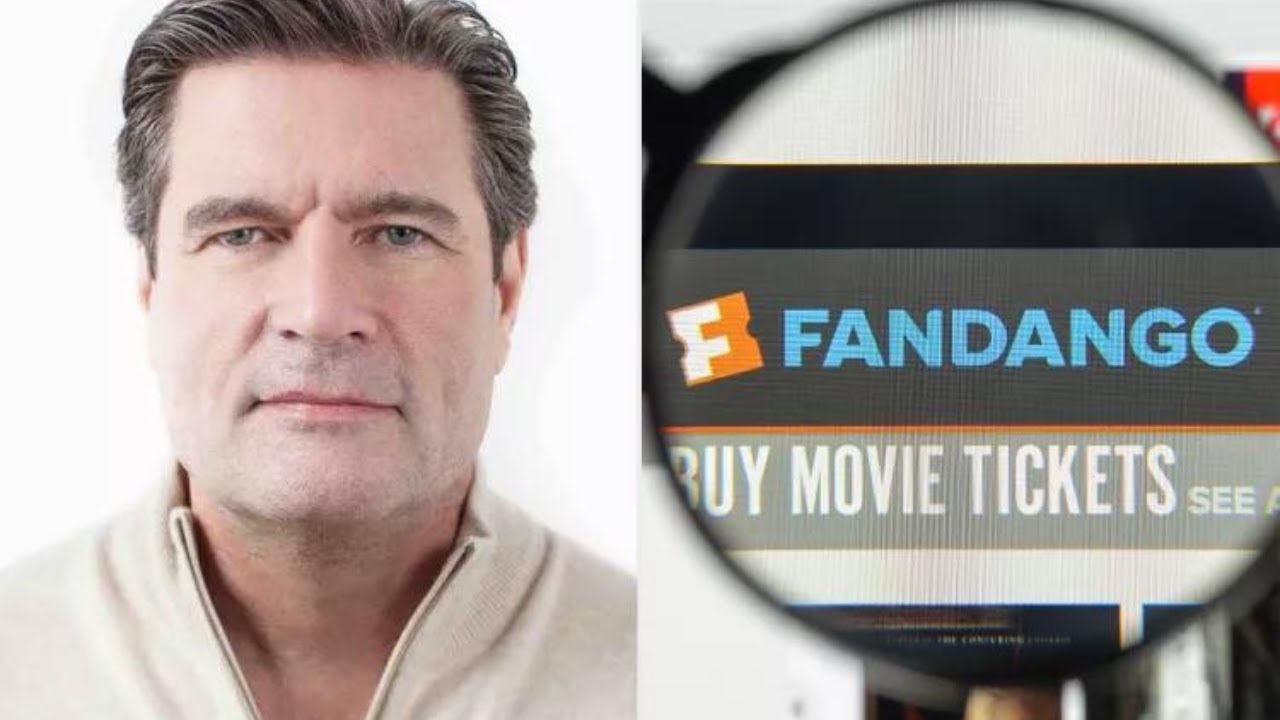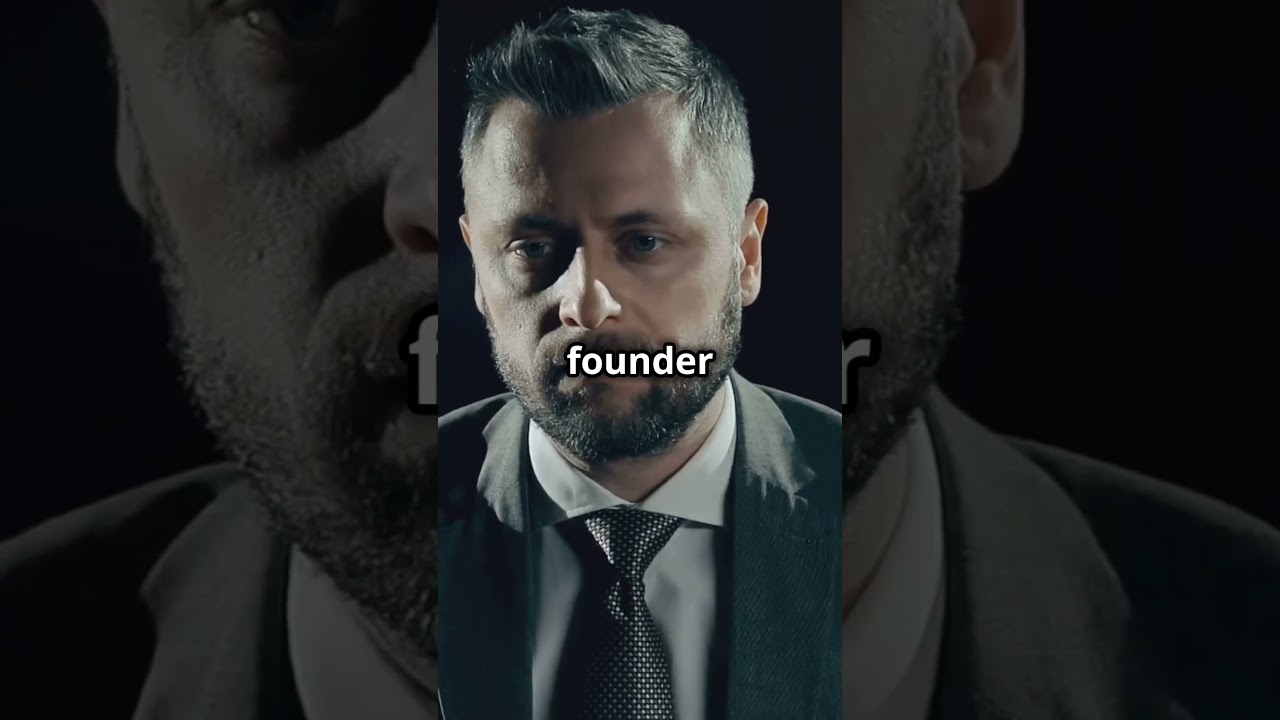The movie industry has undergone a radical transformation over the years, and much of that credit goes to J Michael Cline, the co-founder of Fandango. This innovative platform not only simplified the way we buy movie tickets but also redefined our cinema experience. Cline’s vision helped turn Fandango from a fledgling ticketing service into a powerful player in the film industry, bridging the gap between audiences and their favorite films. Let’s dive into the visionary mind of Cline and explore how his contributions reshaped movie ticketing forever.
The Visionary Behind Fandango: J Michael Cline’s Influence
J Michael Cline isn’t just a name in the history of online ticketing — he’s the architect behind it. When Cline co-founded Fandango in 1999, he had a simple yet ambitious goal: to make going to the movies easier for everyone. By introducing features that we often take for granted today, Cline changed not just how tickets are sold but how we, as fans, connect with the films we love.
Before Fandango, movie-goers were often left standing in long lines or were forced to engage in awkward phone calls to secure a ticket. Cline recognized this pain point early on and made it his mission to streamline the entire process. His commitment to transforming the cinema experience also included embracing technology and adapting to the rapidly changing entertainment landscape. Cline’s work didn’t just set a new standard; it created a better relationship between audiences and theatres.
Unfortunately, Cline’s journey came to a tragic end in July 2024 when he died in an apparent suicide after falling from a luxury hotel in New York City. His legacy, however, remains etched in the fabric of modern movie culture. Not only is he remembered for his innovative ideas, but also for his contributions to a future where cinema is easily accessible to all.

Top 5 Innovations by Fandango J Michael Cline That Changed Movie Ticketing
When we think about Fandango, we picture convenience and efficiency. This isn’t an accident; it’s the result of Cline’s innovative spirit, which sparked five groundbreaking changes in movie ticketing:
Remember the days of showing up at the theater just to find out the movie’s sold out? Cline’s vision introduced real-time ticket availability on Fandango, allowing customers to check on seat availability from the comfort of their homes. This innovation eliminated that pesky uncertainty, making it easier to secure movie plans with friends.
Cline drove forward the development of Fandango’s mobile app, making ticket purchases accessible wherever you are. With the rise of smartphones, having a mobile ticketing option meant no more need for paper tickets or waiting in long lines — just whip out your phone and scan! This was especially helpful for folks who like to snag last-minute tickets, say, before a date night or spur-of-the-moment movie binge.
As movie options increased, so did the confusion — but not on Cline’s watch! Fandango introduced extensive filtering options, helping users find the perfect film based on genre, rating, and showtime. Cline understood that moviegoers don’t just want a ticket; they want an experience tailored to their preferences.
Cline didn’t stop at just ticketing; he formed strategic partnerships with major studios like Disney and Warner Bros. This meant exclusive offers and early ticket sales for high-demand films. Movie buffs could get their tickets before anyone else, turning Fandango into the go-to tool for die-hard film fans.
Cline knew the importance of community feedback. Thus, he added a full-fledged ratings and reviews system where users could share their opinions on films. This community-driven aspect not only informed prospective viewers but also created a platform for moviegoers to engage in spirited discussions, kind of like yelling at the TV during a “Scary Movie 6” marathon.
The Impact of Fandango J Michael Cline on Moviegoing Culture
Cline’s innovations have undeniably reshaped the culture surrounding moviegoing. They’ve transformed a simple outing into an experience consumers eagerly anticipate. Nowadays, it’s almost second nature to whip out our phones and grab our tickets while chilling on the couch or during a lunch break. It’s that kind of ease that plays a crucial role in why people are heading back to cinemas in droves post-pandemic.
When Fandango makes it easier for someone to buy a ticket than to find a parking spot, it utterly changes how cinema fits into busy lives. A Saturday matinee no longer feels like a chore; instead, it’s a treat, a fun outing with friends or family. Cline’s legacy ensures that moviegoers feel empowered rather than chained to convoluted processes.

Comparisons with Other Ticketing Platforms: What Fandango J Michael Cline Does Differently
Fandango may be the big kid on the block, but how does it stack up against other competitors? Let’s take a look.
While AMC’s subscription plan offers unlimited viewing, Cline prioritized flexibility. Fandango lets you pay per show, catering to those who prefer to dip their toes into cinema without committing to a monthly fee. That’s ideal for the occasional moviegoer who just wants to have fun without feeling tied down.
Atom Tickets gives you that friend-invite feature with peer-to-peer ticket purchasing, which is nifty. However, Fandango’s strategic alliances with big-name studios set it apart. This allows fans to access exclusive deals and opportunities, enhancing the overall movie experience beyond mere ticket transactions.
The Future of Movie Ticketing Post-Cline
Even though Cline is no longer with us, his influence is deeply ingrained in Fandango and the movie ticketing landscape. Going forward, the cinema experience will continually evolve, especially with the rise of streaming platforms and popular titles like Mount Ararat Noah’s Ark. Companies must adapt to changes in consumer behavior, driven by the unique strategies Cline implemented.
As Fandango looks to the future, it will need to embrace new technologies like artificial intelligence and virtual reality to stay competitive. By maintaining its focus on enhancing user experience and forging partnerships, Fandango could remain the standard-bearer for movie ticketing.
Innovative Wrap-Up
J Michael Cline’s tenure with Fandango marks a pivotal chapter in the world of movie ticketing. Instead of just being a conveyor of tickets, he foresaw how digital innovations could enhance the viewer experience, making the act of watching films as thrilling as the story itself. Cline’s legacy is more than just about the tickets sold; it’s about making every trip to the cinema a memorable one. So next time you snag your tickets with the tap of a finger, give a nod to Cline — the visionary whose work transformed going to the movies forever.
For a more thrilling experience, catch the latest updates and news, like those about Fc Dallas Vs Inter Miami and the impending Red Heifer Sacrifice 2024! These stories remind us that cinema and real-world events continually intertwine, keeping audiences engaged and entertained at every turn.
Fandango J Michael Cline: A Legacy in Movie Ticketing
The Man Behind the Innovation
Fandango, the popular online ticketing platform, owes much of its success to the brilliance of J Michael Cline. Under his leadership, Fandango transformed how audiences experience movie-going, making it as simple as a click of a button. Cline’s vision aimed to allow movie lovers to reserve their spots without standing in long lines, echoing the convenience that folks expect in today’s busy world. This idea was groundbreaking, much like the plot twist in movies like Black Orchid, which keeps viewers on the edge of their seats. As technology evolved, Cline’s strategies for adapting to new advancements were vital, akin to the unpredictability celebrated in franchises like Scary Movie 6.
Cline’s Approach to Challenges
Navigating the ups and downs of the movie industry can feel like a rollercoaster ride. Cline had to tackle various challenges, including the rise of streaming services. Yet, he saw these shifts as opportunities. His approach involved emphasizing the social aspect of theater-going—who doesn’t love sharing laughs and scares with friends in a packed house? Just like the highs and lows detailed in stories about cocaine comedown, Cline’s journey wasn’t always smooth sailing, but his resilience greatly paid off.
The Influence of Technology and Audience Experience
Speaking of user experience, Cline recognized early on that technology could enhance how fans enjoy movies. He implemented features that allowed users to view trailers and read reviews in one place, making the decision easier—much like how buying Homes That are Foreclosed can sometimes streamline the property search process. Furthermore, Cline’s fascination with storytelling is reflected in his life philosophy, which has parallels to The Four Agreements. His commitment to transparency and respect permeated Fandango’s culture, ensuring that every ticket purchased came with trust and satisfaction.
Thanks to visionary leaders like Cline, movie viewing has become an engaging event that continues to evolve. As we look to the future, Fandango promises to adhere to these principles, drawing inspiration from cultural touchstones like Mount Ararat noah ark stories that resonate through time. Each ticket isn’t just a means to see a film; it represents the shared experience that brings communities together. And who knows? Perhaps the next wave of creative geniuses, like Suga Bts, will emerge from this vibrant landscape.

What happened to the Fandango guy?
Michael Cline, the co-founder of Fandango, tragically died after a fall from a Manhattan hotel, which is being investigated as a potential suicide.
What happened to the CEO of Fandango?
Cline played a pivotal role in Fandango’s launch in 1999 and was actively involved until 2011, shaping how people bought movie tickets online.
What did the founder of Fandango do?
He was the founding and managing partner at Accretive and held a position as executive chairman at Juxtapose at the time of his passing.
What did Michael Cline do?
Fandango, which revolutionized the ticketing process for moviegoers, is currently owned by NBCUniversal after being acquired by Comcast.
What happened with Fandango?
There isn’t detailed public information about J. Cline’s wife, so her identity remains private.
Who is the wife of J Cline?
Fandango is still going strong today, continuing to serve movie enthusiasts with ticketing services.
What is Fandango called now?
Rotten Tomatoes hasn’t bought Fandango; they operate as separate entities within the movie industry.
Did rotten tomatoes buy Fandango?
Walmart doesn’t own Fandango; it’s under NBCUniversal’s umbrella, which is part of Comcast.
Is Fandango still in business?
Disney does not own Fandango either; its ownership is linked to NBCUniversal.
Does Walmart own Fandango?
Fandango was bought by Comcast, which is a parent company of NBCUniversal.
Does Disney own Fandango?
Michael Cline’s death is a grave loss for the movie and tech industry, following his impactful contributions.
Who bought Fandango?
Patsy Cline’s husband, Charles Alden Cline, managed her career and was involved in the music scene during her time.
What happened to the Fandango founder?
Isaac Cline tried to warn others about severe weather conditions as a meteorologist, particularly regarding the 1900 Galveston hurricane.
What did Patsy Cline’s husband do?
Fred MacMurray, a beloved actor, passed away in 1991 from pneumonia at the age of 83 after a long and successful career in Hollywood.
What did Isaac Cline try to do?
Fandango isn’t going out of business; it continues to operate and adapt to the changing movie landscape.
What happened to the actor Fred MacMurray?
Fandango Media is owned by NBCUniversal, which reinforces its presence in the entertainment industry.






